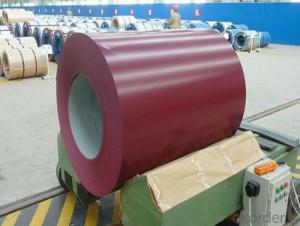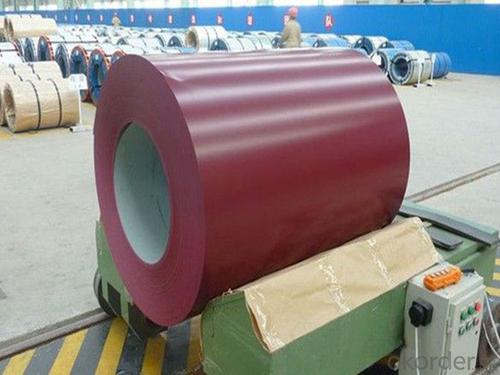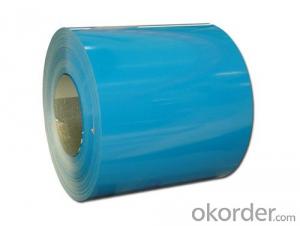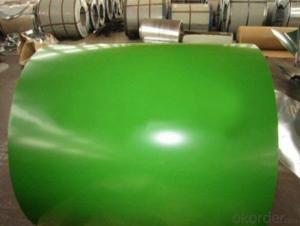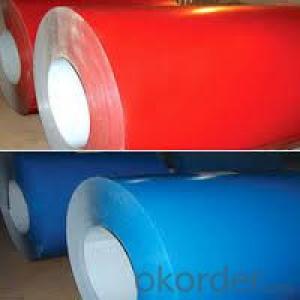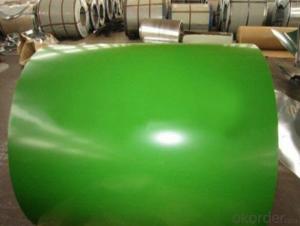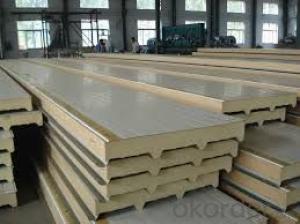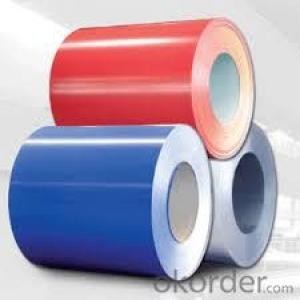All Ral color coated steel coils/Sheet/ Pre-painted Steel Coils/ Sheets /PPGI
- Loading Port:
- Tianjin
- Payment Terms:
- TT OR LC
- Min Order Qty:
- 25 m.t.
- Supply Capability:
- 50000 m.t./month
OKorder Service Pledge
OKorder Financial Service
You Might Also Like
Specification
1.All Ral color coated steel coils/sheet Features:
. Base material:Al-Zn galvanized steel coil.SGLCC
. Top side:15-25µm
. Back side: 5-8µm
. Zinc coating :30-150g/m2
. Width: 700-1250mm
.Thickness: 0.3-1.0mm , Thickness tolerance: +/- 0.02mm
. Color: All RAL Color,or be customized
. Coil Id: 508m&610mm
. Coil weight: ≤5 tons
2. Application of All Ral color coated steel coils/sheet
They are mainly used in construction ,light industry, automobile, agriculture, animal husbandry, fishery and commerce,etc industries.
(1) manufacture anticorrosion, industrial and roof boarding,roof grille.
(2) Make home appliance’s case, civil chimney, kitchen utensils.
(3) Corrosion resistant parts of cars.
(4) Food storage, meat and aquatic products’ freezing and processing equipment.
(5) The equipments to store and transport materials, and packing implements.
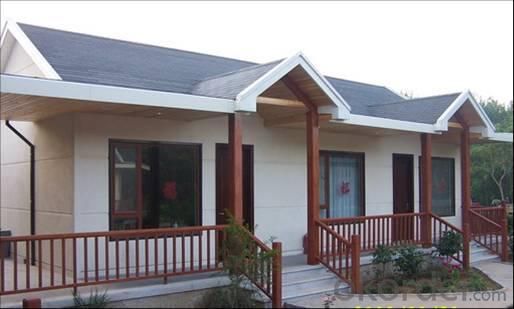
3.Packaging & Delivery
(1)Metal Band Strapping (2) Outside Diameter Ring (3) Label
(4)Protective Steel Sheet (5) Water and Rustproof paper (6)Steel Sheet
4. All Ral color coated steel coils/sheet image:
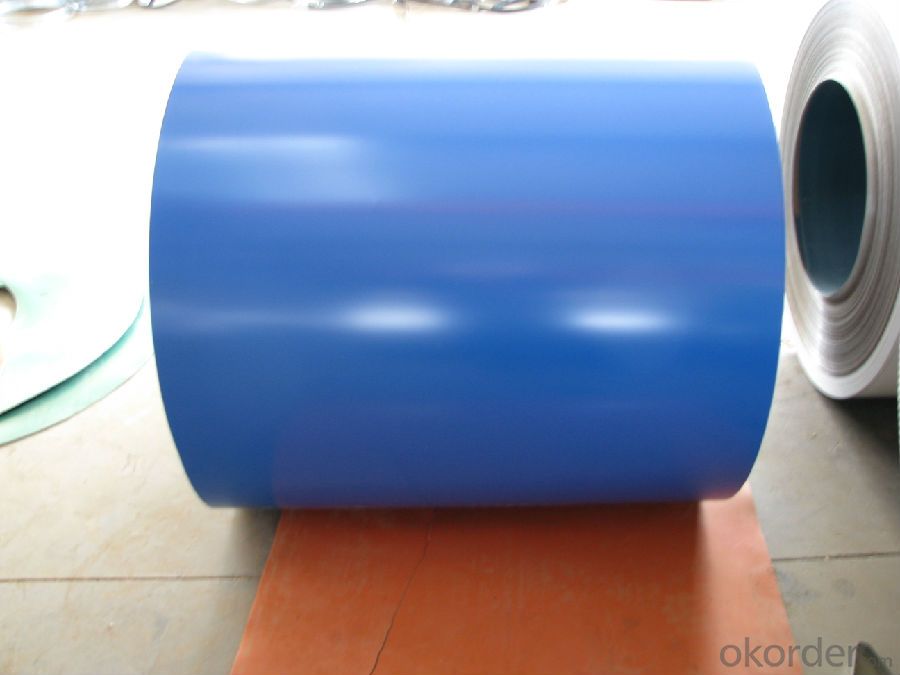
5.FAQ
We have organized several common questions for our clients,may help you sincerely:
①How about your Warranty?
Warranty:
1Year for the whole light. Warranty is based on correct storage, installation, using and maintenanc.
②How to guarantee the quality of the products?
We have established the international advanced quality management system,every link from raw material to final product we have strict quality test;We resolutely put an end to unqualified products flowing into the market. At the same time, we will provide necessary follow-up service assurance.
③How long can we receive the product after purchase?
In the purchase of product within three working days, We will arrange the factory delivery as soon as possible.
- Q: How are steel coils used in the manufacturing of industrial filters?
- Steel coils are used in the manufacturing of industrial filters as a primary material for constructing the filter frames and support structures. The coils are typically cut, shaped, and welded to create the necessary framework that holds the filter media and allows for efficient filtration. The strength and durability of steel make it an ideal choice for withstanding the pressure and demands of industrial filtration processes.
- Q: What is the standard width of steel coils?
- The standard width of steel coils varies depending on the specific industry and application, but it is commonly around 36 inches to 72 inches.
- Q: What is stainless steel coil used for?
- Stainless steel coil is highly valued in numerous industries for its long-lasting nature, ability to resist corrosion, and attractive appearance. One of its most frequent uses occurs in the manufacturing and construction fields, where it is employed in the creation of a wide array of products such as kitchen appliances, cutlery, automotive components, and architectural structures. Its resistance to corrosion makes it especially suitable for applications that necessitate protection against moisture, chemicals, and harsh environmental conditions. Moreover, the strength and ability to withstand high temperatures make stainless steel coils well-suited for use in industrial equipment, heat exchangers, and piping systems. Furthermore, the sleek and contemporary look of stainless steel is often preferred in the design and production of consumer goods like furniture, jewelry, and decorative items. In summary, stainless steel coil is a versatile material that is extensively utilized in a variety of industries due to its exceptional mechanical properties, ability to resist corrosion, and its versatility in terms of appearance.
- Q: What is the role of steel coils in the manufacturing of pipes and tubes?
- The manufacturing process for pipes and tubes heavily relies on the crucial role played by steel coils. These coils serve as the primary raw material used in the production of these products. To produce steel coils, molten steel is processed through a series of rolling mills that shape it into flat, thin sheets. These sheets are then wound into coils for the purpose of easy transportation and storage. During the manufacturing process of pipes and tubes, steel coils are unwound, and the flat sheets are subjected to a series of machines and processes. Typically, the first step involves cutting the steel sheets into the desired width and length. This is followed by forming the sheets into a cylindrical shape through a process known as roll forming or continuous forming. The edges of the sheet are welded together to create a seamless pipe or tube. Steel coils offer numerous advantages in the manufacturing process. Firstly, they ensure consistent and reliable quality. The production of coils guarantees uniform thickness and strength throughout the entire length of the sheet, resulting in consistent properties in the final pipes and tubes. This is especially crucial for applications that demand high structural integrity and reliability. Secondly, steel coils facilitate efficient production. The continuous supply of coils ensures a steady flow of raw material, minimizing downtime and enhancing productivity. Coils also enable automated processes, such as roll forming, which can be extremely efficient and cost-effective. Moreover, steel coils provide flexibility regarding size and dimensions. Coils can be manufactured in various widths and thicknesses, enabling manufacturers to tailor the size and specifications of the pipes and tubes to meet their specific requirements. This flexibility empowers the production of pipes and tubes for a wide range of applications, from plumbing and construction to oil and gas pipelines. In conclusion, steel coils are indispensable raw materials in the manufacturing of pipes and tubes. They offer consistent quality, facilitate efficient production, and provide flexibility in terms of size and dimensions. Without steel coils, the production of pipes and tubes would be significantly more challenging and less efficient.
- Q: What is the process of pickling and oiling steel coils?
- The process of pickling and oiling steel coils involves several steps. First, the steel coils are immersed in a pickling bath containing a mixture of acids to remove any impurities, scale, and rust from the surface of the steel. This helps to improve the quality and appearance of the steel. After pickling, the coils are rinsed with water to remove any residual acid. Next, the coils are coated with a thin layer of oil. This oil acts as a protective barrier, preventing the steel from rusting or corroding during storage, transportation, and further processing. The oil also helps to enhance the surface finish of the steel. The pickled and oiled steel coils are then typically rolled or processed further according to specific requirements. This could involve additional annealing, cold rolling, or other treatments to achieve the desired properties or dimensions. Overall, the pickling and oiling process is crucial in preparing steel coils for various applications, ensuring they are clean, corrosion-resistant, and ready for further processing or use.
- Q: How hot does steel have to get before it will melt?
- Type your query into Yahoo! Search or other search engines to get the answer: It depends, since steel usually has different metals added for various properties (strength, corrosive resistance, etc.)
- Q: How are steel coils used in the manufacturing of signage?
- Steel coils are used in the manufacturing of signage as they serve as the base material for creating durable and sturdy sign structures. These coils are shaped, cut, and processed into various sign components, such as frames, brackets, and supports, which provide stability and strength to the signage. Additionally, steel coils can be coated or painted to enhance the appearance and protect the signage from corrosion, making them ideal for outdoor applications.
- Q: I saw a 27 sedan and a 27 Pick-up one had wood wheels the other steel, respectively. Witch one was original or were they both original
- Wooden Spoke Wheels
- Q: Can we construct a barn using steel and will it be a durable one?
- Barns can be constructed out of a number of materials be it steel, block or wood. Among all the available materials, steel offers the best in terms of strength, durability and pricing. Constructing a barn using wood can be a costly task because of the high price of wood. On the other hand, constructing a barn using block consumes more time and involves a much more professional approach thereby increasing the labor costs. Considering all these factors, it is always recommended to go for steel barns due to their durability, robustness and longer life span.
- Q: I need details for steel column splices welded or bolted. References or autocad blocks will be very useful. Thank you very much!
- The refernce for Canada is S16-01 Limit states steel design My professor always taugth us shop weld field bolt if that helps
Send your message to us
All Ral color coated steel coils/Sheet/ Pre-painted Steel Coils/ Sheets /PPGI
- Loading Port:
- Tianjin
- Payment Terms:
- TT OR LC
- Min Order Qty:
- 25 m.t.
- Supply Capability:
- 50000 m.t./month
OKorder Service Pledge
OKorder Financial Service
Similar products
Hot products
Hot Searches
Related keywords
